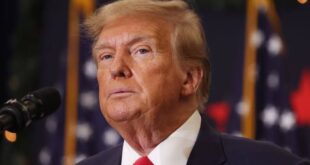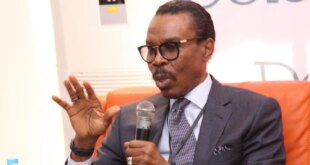The Director-General and Chief Executive of the Industrial Training Fund (ITF), Joseph Ari, has been conferred with the 2022 Public Service award by the Leadership Media Group Limited for his contributions to the development of skill acquisition programmes for youths across the country.
The Vice Chairman of Leadership Media Group Limited, Chief Mike Okpere led a delegation from the Company to present the nomination letter to the ITF DG in Abuja.
Okpere was accompanied by a Director of the Company, Abraham Nda-Isaiah, as well as other top officials of Leadership Group.
He explained that in the last 14 years, the Company has been assessing outputs made by individuals and organizations across the country .
According to him, the Leadership Group gives award to only those who have distinguished themselves in chosen area of human endeavors, noting that for the 2022 period, three Nigerians would be awarded as the Leadership Person of the year.
He said, “These awards are given to deserving persons who have attained positions of height and achieved excellence in their outputs.
“For the 2022 Award, we found it necessary and decided that three persons deserved to be given the Leadership Public Service Persons of the Year 2022. We are proud to say that Sir Joseph Ari, the DG-ITF is one of those persons.”
He further explained that the award will formally take place later in the month of January at the International Conference Centre (ICC) in Abuja.
While reacting, the DG applauded the management of Leadership Media Group for finding him worthy to be part of the public service award 2022, stating that the company is a well respected organisation.
He dedicated the award to Nigerians, members of staff of the ITF and President Muhammadu Buhari for his support towards ensuring that ITF is at the fore front advocating the need for Nigerians to be equipped with skills.
He said under the renewed vision of the ITF, the focus of the Fund is centred around a national apprenticeship training system.
With the rising unemployment in tbe country, the ITF DG said the Fund is constantly reviewing it’s programmes to enable more Nigerians to embrace skills acquisition.
He said, “By 2050, we are meant to be the third most populous nation in the world with about 400 or 500 million people and that is just in few years.
“Imagine what it would be like if you have an unskilled population skills for so much crisis, the issue of restiveness, prostitution, armed robbery and so on will be a daily event.
“The good thing about Nigeria is that our population is made up of the youth. Many nations of the world are aged in population but we have a young vibrant population. About 60% of our population consists of the youth and so if we have a skilled population, we can even export skills out.
“Skills have come to be known as the currency of the 21st century. So, what we have done in terms of the apprenticeship is we’ve been able to bring up trade areas that are interventionist in nature.
“Last year, we have 35 of them from plumbing and fabrication, pipe fitting, oil and gas to POP. We even have programmes designed for the women folk known as Women’s Skills Empowerment Programme, WOSEP, and even the ones for the physically challenged.
“If you take one of the intervention programmes, for example, the National Industrial Skills Development Programme, if you take 300 persons per state multiplied by 37 states including the FCT, we have about 11,100 to be trained in one trade area.”
Ari stated further that the Fund has, in 6 years trained over 500,000 Nigerians with the requisite skills to key into the federal government’s job and wealth creation policy direction under the National Development Plan.
He said, “We have also made in submission to government that there are four areas we need to pay attention to, and these came about as a result of the survey we carried out with the United Nations Industrial Development Organisation.
“We carried a skills gap survey, we wanted to know what are the gaps that exists so we bring in our huge population to fill into those.
“We came up with four critical areas. These are construction, agriculture, the services industry and the ICT. The services industry for example is very huge in value chain. And we said with this development , you can fill in the gaps that exist.”
ENDS
 The Commerce Africa African Reneissance
The Commerce Africa African Reneissance




